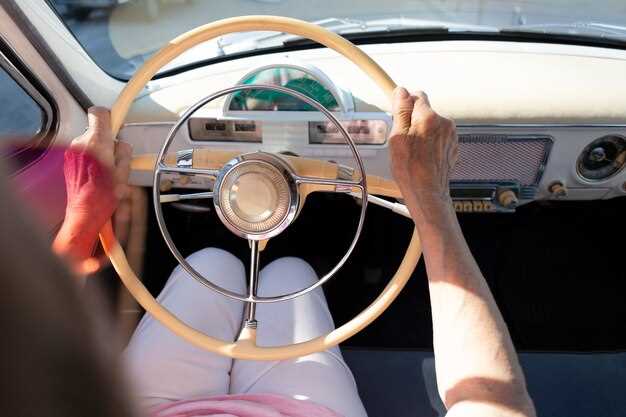
Buying a classic car can be one of the most thrilling experiences for any automotive enthusiast. Whether you are drawn to the nostalgic designs, the engineering marvels of the past, or simply the appeal of a vintage vehicle, owning a classic car brings a unique sense of joy and pride. However, the process of finding the perfect classic car is not without its challenges and considerations.
In your journey to purchase your first classic car, it is essential to understand that the market is filled with various makes and models, each with its own history and character. Research is your best friend in this endeavor. Knowing what to look for, including the vehicle’s condition, previous ownership, and potential resale value, will pave the way for a successful investment.
Additionally, understanding the costs involved in maintaining and restoring a classic car is crucial. Many buyers overlook the ongoing expenses associated with owning a classic vehicle. From insurance to parts availability, being prepared will help you enjoy your classic car to the fullest while avoiding unpleasant surprises.
As you embark on your classic car purchasing journey, keep in mind your personal preferences and budget. Take your time to explore and consider different options before making a decision. This guide aims to equip you with the knowledge and confidence needed for making an informed choice in the exciting world of classic automobiles.
Researching Classic Car Models That Fit Your Budget
When embarking on your journey to purchase a classic car, the first step is to identify models that align with your financial capacity. A well-researched approach ensures you find a vehicle that not only resonates with your passion but also fits your budget.
1. Set a Realistic Budget: Determine how much you are willing to spend on a classic car. This includes not just the purchase price but also insurance, maintenance, and potential restoration costs. Remember, some models demand higher upkeep, so factor this into your total budget.
2. Explore Various Models: Research classic car models that appeal to you. Websites like classic car auctions, enthusiast forums, and dedicated classic car magazines can provide valuable insights. Look for models that are known for their reliability and lower operating costs.
3. Understand Market Trends: Pay attention to the classic car market trends, as prices fluctuate based on demand and availability. Some models may appreciate over time, while others could depreciate. Following the market will help you make a sound investment.
4. Join Online Communities: Engage with online classic car forums and social media groups. These platforms are rich with knowledge from seasoned owners who can share their experiences, offer advice on specific models, and help you navigate the complexities of ownership.
5. Visit Car Shows and Auctions: Attend local car shows and auctions to see classic cars in person. These events provide an excellent opportunity to evaluate various models and speak directly with owners about the nuances of different classic cars.
Taking the time to thoroughly research classic car models will empower you to find not just a vehicle, but a timeless piece of automotive history that fits your budget and lifestyle.
Evaluating Condition: What to Check Before Buying

When it comes to buying a classic car, evaluating the condition is paramount. A thorough inspection can save you time, money, and headaches in the long run. Here’s a guide on what to check before committing to a purchase.
First, examine the exterior. Look for rust, dents, and paint irregularities. Inspect the body panels for consistency; misaligned gaps may indicate previous accidents. Pay special attention to the undercarriage, as rust can be less visible but significantly impact the vehicle’s integrity.
Next, assess the engine compartment. Check for leaks, and ensure that all components are clean and in good condition. Look for signs of wear and tear on hoses, belts, and electrical connections. A well-maintained engine is crucial for the reliability of a classic car.
Don’t forget the interior. Inspect the seats, dashboard, and flooring for any signs of wear or damage. Check the functionality of all controls, including air conditioning, heating, and the sound system. A clean interior not only enhances your driving experience but also adds to the car’s value.
Tires and suspension are also critical components. Ensure the tires are evenly worn and the tread depth is sufficient. The suspension should feel responsive without excessive bouncing or noise when you drive. A thorough test drive can help identify any underlying issues.
Finally, review the documentation. Request maintenance records and any previous restoration work. Verify the car’s history through services like Carfax or AutoCheck. A well-documented classic car not only provides peace of mind but also bolsters its resale potential.
By following this guide and carefully evaluating the condition of the vehicle, you can make a more informed decision when buying your first classic car.
Navigating the Purchase Process: Paperwork and Transactions

When buying your first classic car, understanding the paperwork and transaction process is crucial to ensure a smooth acquisition. The initial step involves verifying the car’s title, which should be clear and free of any liens. A clean title proves rightful ownership and provides peace of mind.
Once you have confirmed the title, request a detailed history of the vehicle. This should include reports on past ownership, accidents, and maintenance records. Utilize services like Carfax or AutoCheck to gather comprehensive data that can influence your decision.
After confirming the vehicle’s history and condition, prepare for negotiations. Establish a budget and be ready to make an offer, keeping in mind both your preparedness for the transaction and the seller’s expectations. It’s advisable to communicate openly about any concerns or questions regarding the car’s condition.
If an agreement is reached, you will need to discuss payment methods. Cash transactions can be straightforward, but if you are using a bank transfer or a check, ensure that these methods are reliable and traceable. Additionally, avoid digital wallets for high-value transactions, as they may lack buyer protections.
Before finalizing the purchase, have a bill of sale prepared. This document should outline the sale details, including the VIN, purchase price, and the names and signatures of both parties. This serves as a legal record of the transaction and is vital for future registrations.
Once the sale is complete, you will need to register the classic car with your local Department of Motor Vehicles (DMV). Depending on your location, requirements can vary, so be prepared with necessary documentation, including the signed title, bill of sale, and any inspection certificates, if applicable.
In summary, careful navigation of the paperwork and transaction stages can enhance your experience when buying a classic car. Attention to detail in these areas not only legitimizes your purchase but also protects your investment for years to come.
